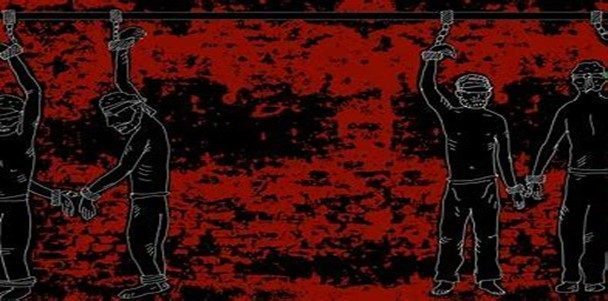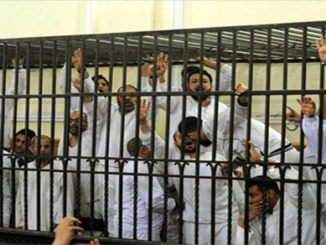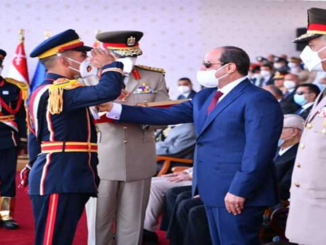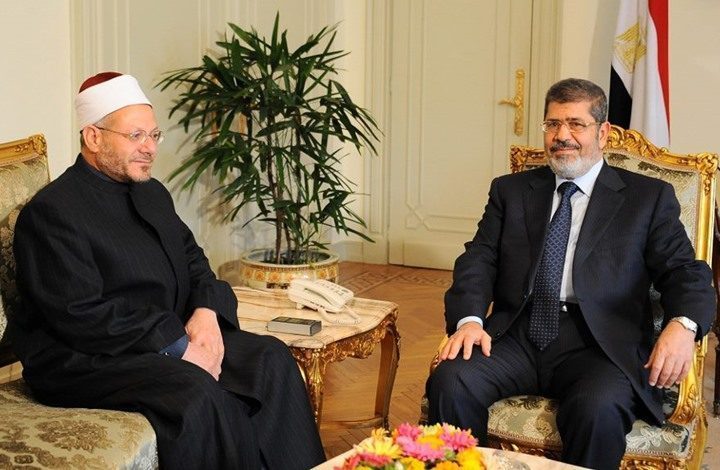
Detainees at Egypt’s Al-Salam Police Station in Cairo have reportedly suffered renewed torture following leaks of secret filming of abuse.
Last month some video leaks to the Guardian showed Egyptian police torturing prisoners at a police station in Cairo.
In one of the videos, which was thought to have been recorded in the Salam neighborhood of the Egyptian capital, the detainees were hung from a metal grate by their arms.

In the other detainees have wounds across their chests and back which they say were inflicted by officers hitting them with sticks at the hands of police officers beating them with sticks.
Earlier this month it was reported that family members of the relatives held at the police station have been unable to contact them following the leaks.
Egypt’s public prosecutor responded by releasing a statement insisting that the injuries were self-inflicted by the inmates who used metal coins to injure each other.
However, a new video has been leaked from the same source that the same detainees faced increased torture as a result of the initial videos.
In 2018, Carnegie said that increasing torture being practiced by officials in Egypt is a sign of the growing impunity among the country’s security apparatus.
This is compounded by the lack of credibility of the judiciary and the breakdown of the rule of law.
Police officers try and force confessions out of detainees by torturing them, however, these confessions cannot be considered real evidence because of how they were obtained.
Regularly officers have gone too far and killed inmates whilst torturing them, including shop owner Islam Al-Ostraly, who was tortured to death in 2020 after being arrested because he refused to pay a bribe.
Al-Ostraly’s family was told he died of circulatory failure, but his body bore signs of torture including burns and scars. Following the news of his death protests broke out in the Moneeb neighborhood where he lived.
In 2018 police officers detained 22-year-old Afroto and beat him to death whilst he was in custody and again hundreds of people gathered outside Moqattam police station to demonstrate.
In 2015 former Egyptian political prisoner Mohamed Soltan, who said he was “subjected to more torture than anyone should have to endure” appealed to the West to speak out and not to turn a blind eye on human rights violations in Egypt.
One inmate, speaking to the camera directly addressed President Abdel Fatah Al-Sisi and explained that he was arrested while at work. Instead of being released after a few hours “as they usually do”, he was instead transferred to the public prosecutor who asked for evidence against him which was not produced. The detainee said he was later tortured, to the extent that he no longer can move one of his arms and hands in the way he could previously.
Another man is seen claiming others were accused of belonging to the now-banned Muslim Brotherhood, however he insists they are not even Muslims, before proceeding to show their forearms to the camera, in an apparent reference to the Coptic cross tattoos commonly worn on the wrists.
One former detainee-turned exiled activist, Aly Hussin Mahdy was quoted by the Guardian as saying “Police stations are even worse than prisons.”
“The revolution happened because of this, and 11 years later we see it happening again.”
Despite a prohibition on all forms of torture according to Egypt’s 2014 constitution, the practice continues to take place across police and military prisons and detention centers, with the number of documented cases having increased since 2011. Furthermore, trials and convictions of security officials accused of carrying out torture or causing deaths in police custody remain extremely rare.



